Inequality
Activities
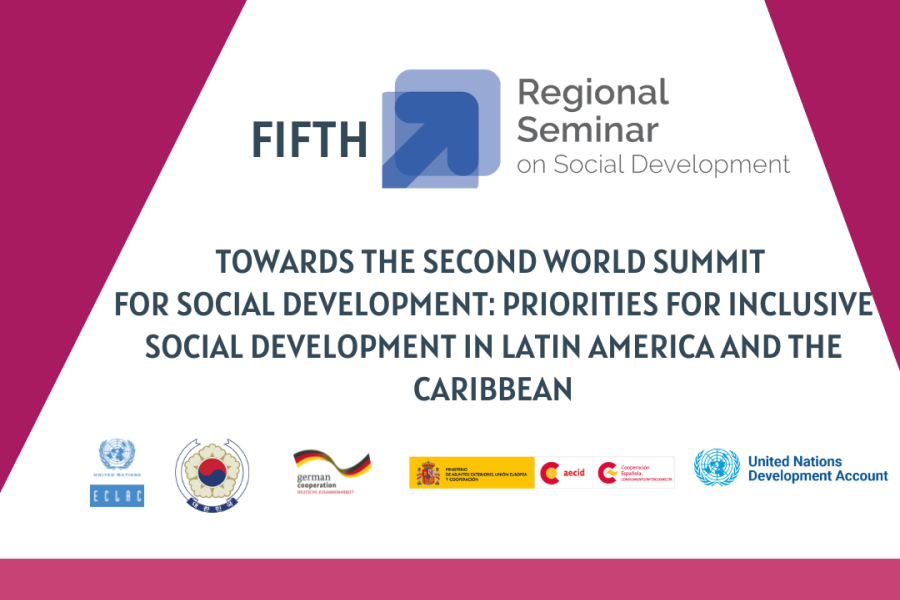
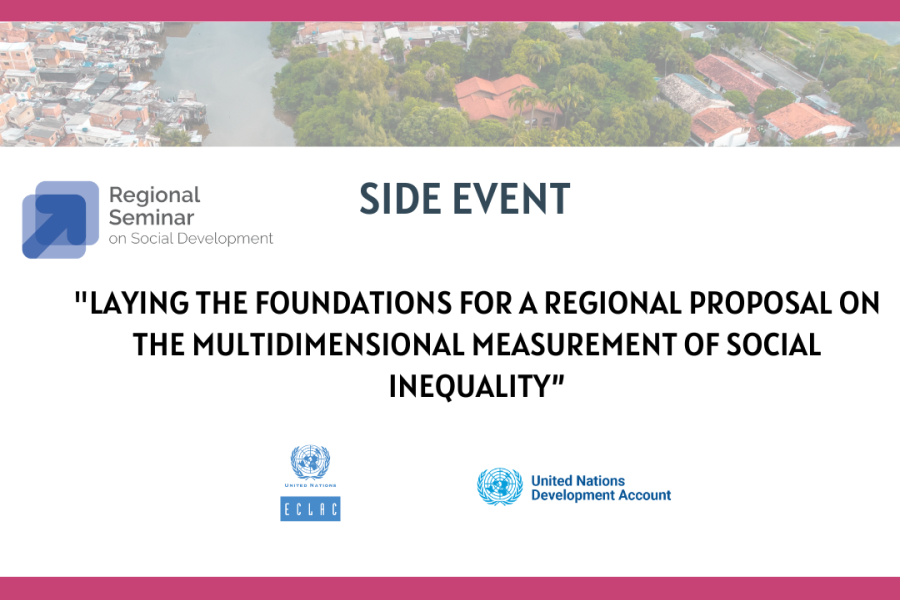
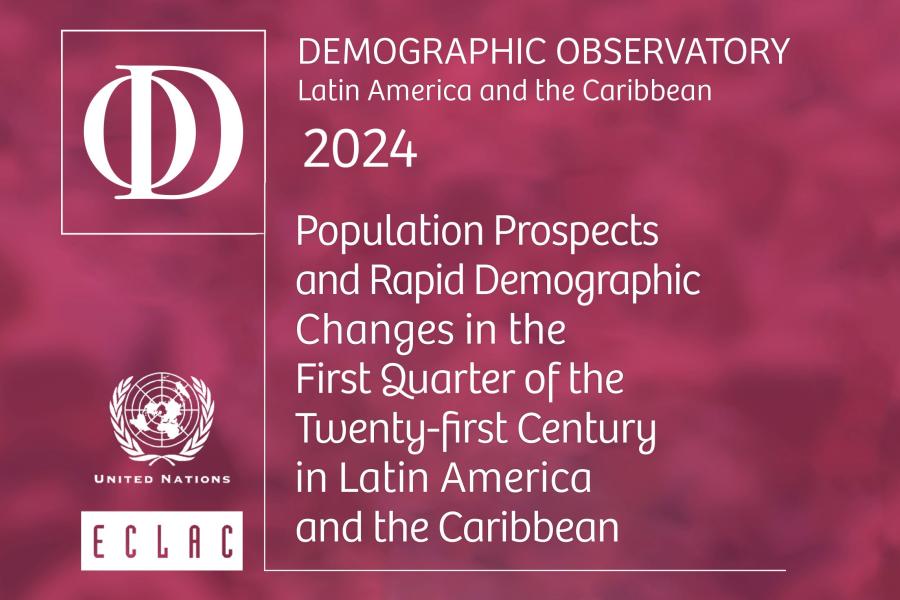
Launch of the 2024 Demographic Observatory: "Population Prospects and Rapid Demographic Changes in the First Quarter of the 21st Century in Latin America and the Caribbean"
CELADE - Population Division of ECLAC invites to the launch of the 2024 Demographic Observatory, a document presenting the main demographic indicators of Latin America and the Caribbean according to the 2024 revision of the United Nations population estimates and projections. The document compares these indicators with the 2000 revision with the aim of highlighting the major demographic changes in the region since the beginning of the 21st century.

“Social cohesion for inclusive social development in Latin America: monitoring, challenges and opportunities in an era of uncertainties"
The central focus of the Fourth Regional Seminar on Social Development "Social Protection and Inequality: Latin America and the Caribbean towards the Second World Summit for Social Development in 2025" is inequality. In this context, the objective of this parallel event is to open the discussion on the state of social cohesion in the region.
News
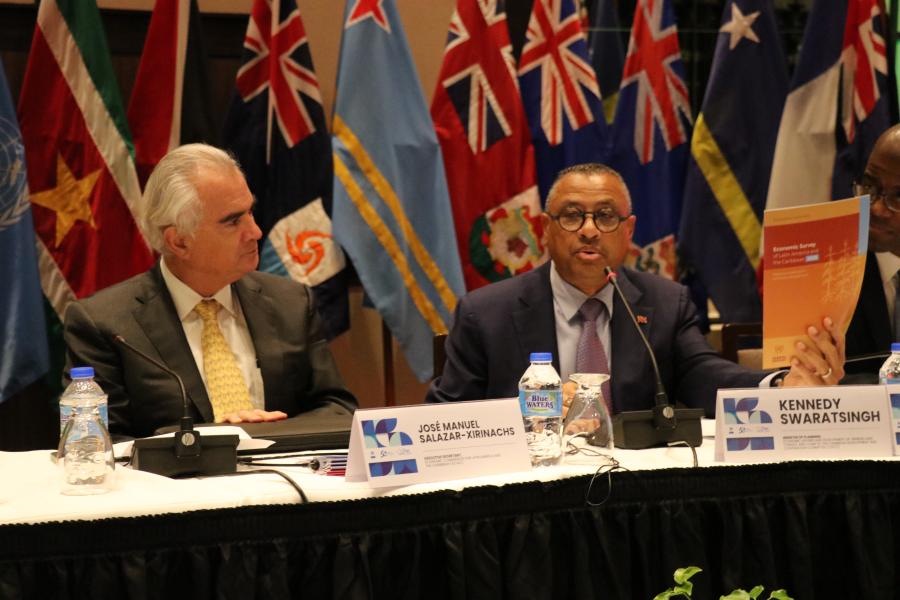
ECLAC Executive Secretary: Caribbean Must Be Active Architect of Its Development Models
José Manuel Salazar-Xirinachs participated in the meeting of the Monitoring Committee of the Caribbean Development and Cooperation Committee (CDCC).
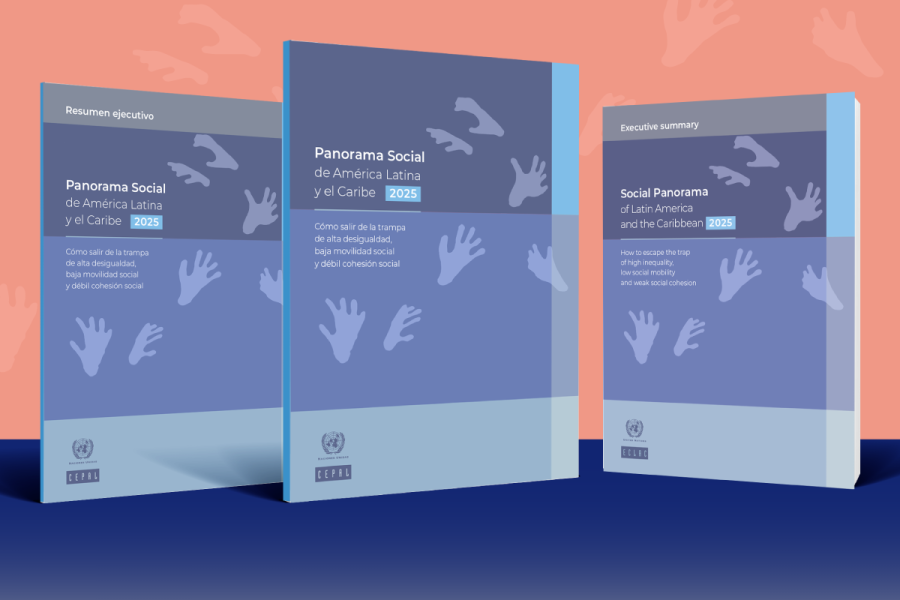
Income Concentration is Still Extreme in Latin America: The Wealthiest 10% Obtains 34.2% of Total Income, While the Poorest 10% Only Gets 1.7%, ECLAC Warned Today
The annual report Social Panorama of Latin America and the Caribbean 2025 examines the trap of high inequality, low social mobility and weak social cohesion in which the region is mired, and recommends five public policy strategies for overcoming it.
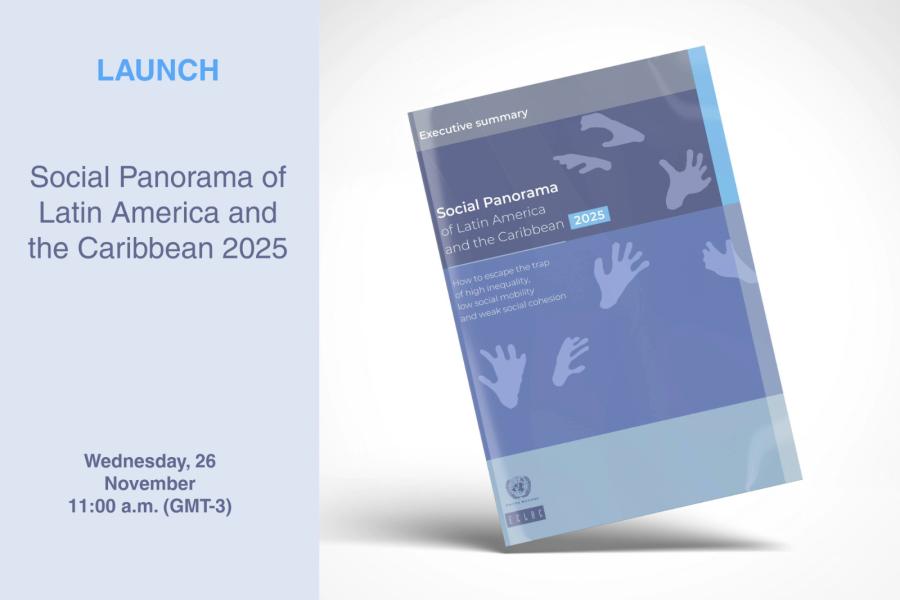
ECLAC Will Launch its Social Panorama of Latin America and the Caribbean 2025 Report
At a press conference next Wednesday, November 26, José Manuel Salazar-Xirinachs, the United Nations regional organization’s Executive Secretary, will present updated figures on poverty, inequality and social spending in the region.
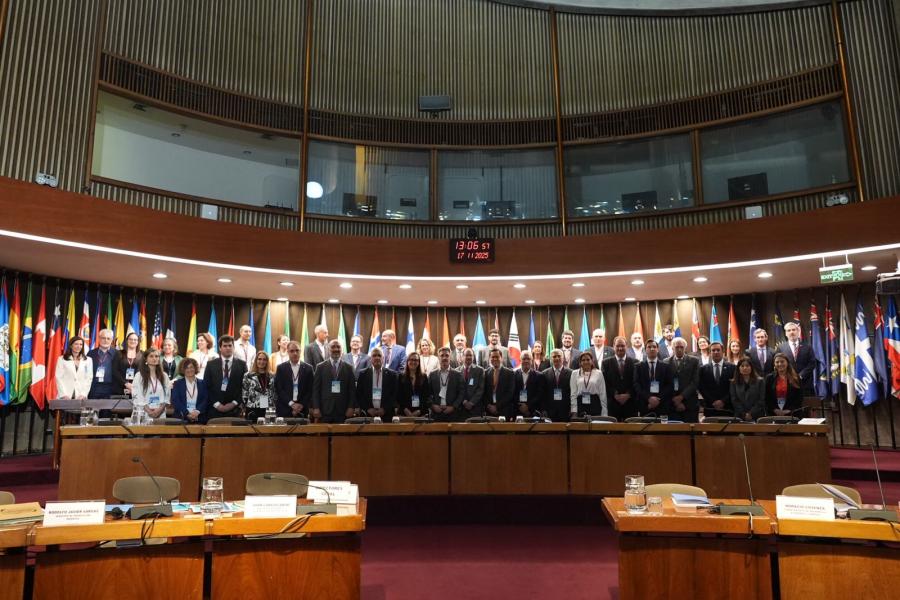
Countries and Territories Must Strengthen their Productive Development Policies via Strategic Agendas for Moving Towards More Sustainable and Inclusive Development
These agendas should be centered on driving sectors, multilevel and multi-stakeholder coordination, and the promotion of productive articulation initiatives, according to the authorities and experts gathered at the Session for Productive Development Ministers of Argentina, which was held at ECLAC.